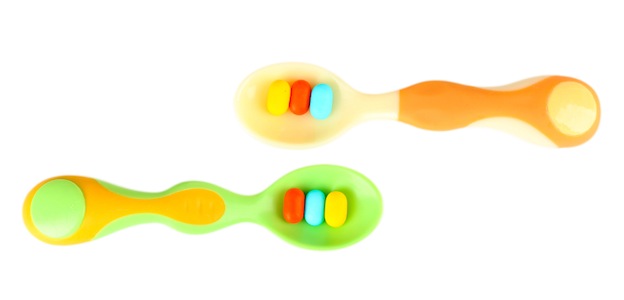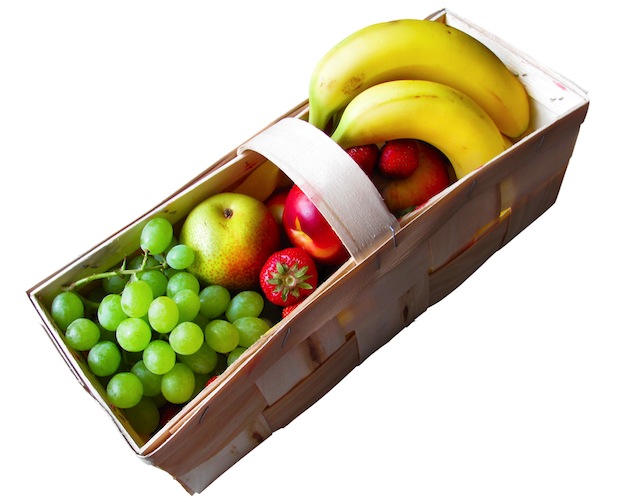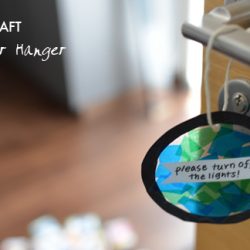SingaporeMotherhood | Baby & Toddler
April 2014
Does Your Child Need Supplements?

Walk into any pharmacy and you’ll be greeted by rows of colourful bottles promising to make your children taller, healthier, and brainier, and give them good vision and excellent digestion forever. Ignore these and you’d feel as if you are denying your child a better, healthier future. But do children really need supplements?
The nutritional supplement industry is a thriving one in Singapore. According to sources, it grows at a robust nine to 10 per cent per year. In fact, it is estimated that an average Singaporean family consumes about $152 worth of supplements per month.
[banner][/banner]
The popularity of supplements is not surprising. It is tempting to simply pop a pill or down a spoonful or two and believe that these eradicate all manner of bad dieting and poor eating habits. But as experts will caution, there is no such thing as a magic pill or potion, and yes, you are what you eat.
Still, supplements do come in handy in certain situations.
When To Take
1. Mum’s not breastfeeding
Ineke Christina, 38, a stay-home mother to three active boys aged 13, eight and six, has been giving her sons nutritional supplements since they were infants. Advised by their paediatrician, she gave them lysine drops until they turned one year old. These were to enhance their immune system because their she could not breastfeed. “I then gave them multivitamins for about five years,” she added. “They have had very good appetites since.”
Dr. Lian Wee Bin, Consultant Paediatrician at SpecialKids Child Health & Development Clinic, says that there is indeed a time and place for supplements. “Certain groups of children are more at risk than others for nutritional and developmental concerns. It may be worth the while to have them on supplements especially if their diet is poor.
“If there are concerns that the child may not be taking a good spread of nutrients and minerals, it would be useful then to take a general multivitamin that should include the Vitamins A-C-E and also some of the micronutrients such as iron, zinc, iodine amongst others.”
2. Allergies, picky eaters
A local study has found that between four and five per cent of children in Singapore have allergies. Some children may have lactose intolerance, some may be allergic to wheat, eggs, fish, soy or nuts. Some may be vegan or vegetarian, or simply have a poor appetite. Some fussier eaters may refuse to consume anything green, or anything with a meaty texture.
In all these cases, supplements could help provide what the child’s diet lacks. So although supplements should not replace an unbalanced diet, they could be beneficial to the child in this case. However, do remember to consult your child’s paediatrician before feeding your child with any supplement.
 Photo: Michaela Kobyakov
Photo: Michaela Kobyakov
Why Avoid?
Lim Pey Ling, 38, a mother of three children between the ages of five and eight, has never given her children any supplements.
During her pregnancies, her obstetrician put her only on folic acid supplements as “anything with a shelf-life would certainly have preservative and it defeats all the goodness of a vitamin”.
As the children’s paediatrician is in favor of consuming nutritious food for vitamins and minerals, Pey Ling tries to cook healthy meals instead of giving her children supplements. “I use wolfberries and walnuts in my soups, for example,” she explained.
“Generally if the child is able to take a good extensive diet, there is no real need for supplementation,” confirmed Dr Lian.
Ms. Ang Bixia, Senior Dietition of KK Hospital agreed: “Obtaining good nutrition through food rather than supplements is always encouraged. Multi-vitamins are generally not necessary for healthy children.”
Taking supplements may even bring health risks for children who do not need them. Ms. Christine Ong, Chief Dietition of KK Hospital cautioned, “Some vitamins can be harmful if taken in large doses over a long period of time.”
Just how serious are these risks?
“Too much Vitamin A can lead to increased intracranial pressure and skeletal abnormalities in infants, as well as hair loss, hepatomegaly, lethargy, headache, weight loss, vomiting, anorexia and skin lesions”, said Ms. Ong, adding that “too much Vitamin C can cause gastric irritation and diarrhea and too much iron can [negatively] affect zinc absorption”.
But “so long as an age-appropriate supplement is given to your child in the recommended dose, the levels of vitamins and minerals should be within the safe limits,” she assured.
Facts & Fallacies
• What to note when selecting supplements for your family.
• Sort out the facts and the fallacies of supplements for children.
• Check official dietary allowances.
• Find out where to find your vitamins in food.
All content from this article, including images, cannot be reproduced without credits or written permission from SingaporeMotherhood.
Follow us on Facebook, Instagram, and Telegram for the latest article and promotion updates.





